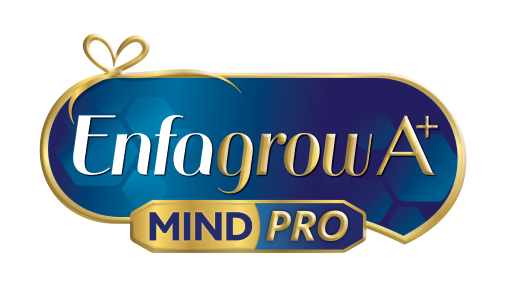
The third trimester is the final stretch of your pregnancy, and you need to take continued care of yourself and your developing baby.
Maintaining healthy nutrition during your final stretch of pregnancy is important for your growing baby—and your ever-changing body! To cross the finish line feeling strong, follow these tips.
3rd trimester nutrition tips: Have smaller meals
You may gain around 400 grams per week this trimester.i As you and the developing baby get bigger, it’s important to continue eating sufficiently and healthily. Try to eat 3 small to moderate-sized meals at regular intervals, and 2-3 nutritious light snacks spread throughout the day. Continue to aim for a healthy diet, including a variety of vegetables and fruits, protein-rich foods which include milk, beans, whole grains and nuts, to ensure your developing baby gets a balanced nutrient intake crucial for his or her overall development.
Don’t forget your nutrients, including calcium, protein, iron and DHA.
Your developing baby’s need for calcium is especially great in this last trimester, where most of his or her bone development occurs. Continue to consume dairy products like low fat milk and yoghurt, as they are rich in calcium and also magnesium and phosphorus important for bone development. Try to have sufficient vitamin D from sun exposure or your diet as it helps in calcium absorption.
His or her growing muscles and tissues also need proteins. During the third trimester of your pregnancy, you need extra protein of around 30 grams dailyii which you can get from a variety of sources such as poultry, fish, milk, and eggs. Poultry and red meat are not only a good source of protein, they are also rich in zinc which supports both your and your developing baby’s immune function.iii Also continue to include iron-rich foods like spinach, poultry and red meat in your daily meals to help your little one with his or her red blood cell production.
DHA remains very important for developing baby’s brain development, so make sure your diet includes fatty fish, a great source of this brain-boosting nutrient. As a building block of your developing baby’s brain, DHA accumulates most rapidly in his or her brain during this last trimester until the first year of life.iv Continue to consume around 200 milligrams of DHA daily.v
Remember to also take your supplements which may include iron, folic acid and calcium as directed by your doctor.
Eating well now can also help your body recover and repair itself after postnatal. So fill your plate with lean meats, legumes, soybeans, fish, fruits and vegetables, milk, as well as other healthy foods.
Note: If you have nutrition questions, be sure to speak with your doctor for expert help in creating a pregnancy diet tailored to your personal third trimester needs.
Drink plenty of water!
It may feel like you're spending your life in the restroom these days. At this stage of the pregnancy, your developing baby is large enough to be pressing rather steadily on your bladder, making those trips to the bathroom much more urgent, no matter the time of day (or night!).
But that doesn't make proper hydration any less important. Adequate hydration is especially important during pregnancy to support amniotic fluid and the increase in blood volume.vi It can even help alleviate constipation. So keep on downing those 2.3L of water a day, or about 10 cups.vii This may also keep the leg cramps in check.
Maintain your exercise routine.
Even a little exercise during pregnancy can help you stay fit, as well as helping to prepare your body for labor and delivery. So don't give up now, even if getting physical is the last thing you want to be doing. Do what you can, and what your doctor says is OK.
References:
- Diet & Your Pregnancy. (n.d.). Retrieved April 7, 2017, from https://www.kkh.com.sg/HealthPedia/Pages/PregnancyDuringDiet.aspx
- Joint FAO/WHO/UNU Expert Consultation on Protein and Amino Acid Requirements in Human Nutrition, (2002). Geneva, Switzerland. WHO Technical Report Series 935, pp. 243-244). Retrieved 2 June 2017 from, http://apps.who.int/iris/bitstream/10665/43411/1/WHO_TRS_935_eng.pdf
- Darnton-Hill, Ian, (2013). Zinc supplementation during pregnancy: Biological, behavioural and contextual rationale. e-Library of Evidence for Nutrition Actions (eLENA), WHO.
- Carlson, Susan E., (2009). Docosahexaenoic acid supplementation in pregnancy and lactation. American Journal of Clinical Nutrition, 89(2): 678S–684S.
- Curtis, G. B., & Schuler, J. (2016). Your Pregnancy Week by Week (8th ed.). Philadelphia, PA: Da Capo Press.
- Montgomery, K. S. (2002). Nutrition Column An Update on Water Needs during Pregnancy and Beyond. The Journal of Perinatal Education, 11(3), 40–42.
- EFSA Panel on Dietetic Products, Nutrition, and Allergies (NDA) (2010). Scientific Opinion on Dietary Reference Values for water. EFSA Journal, Volume 8, Issue 3.

